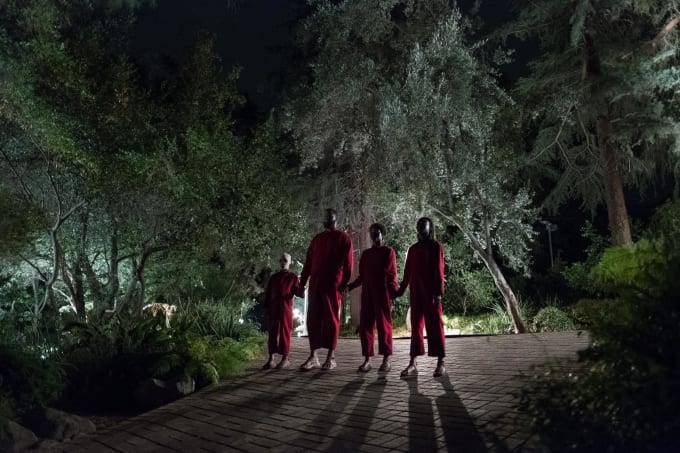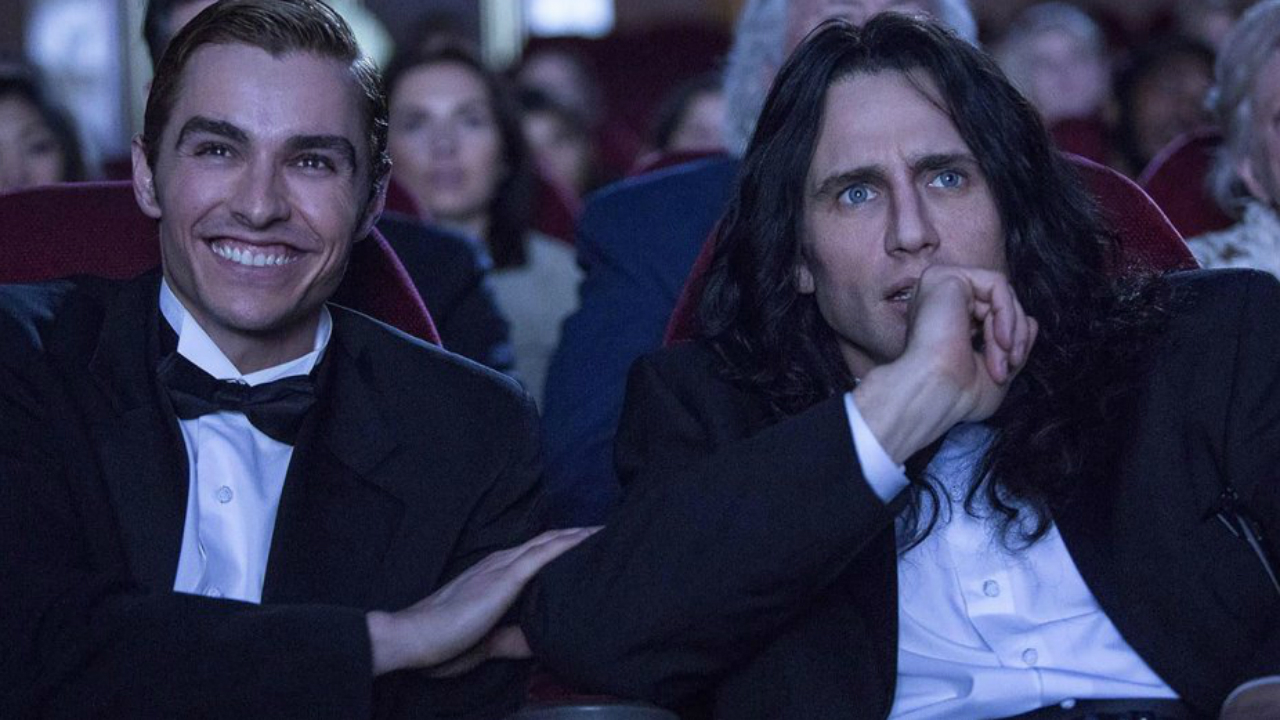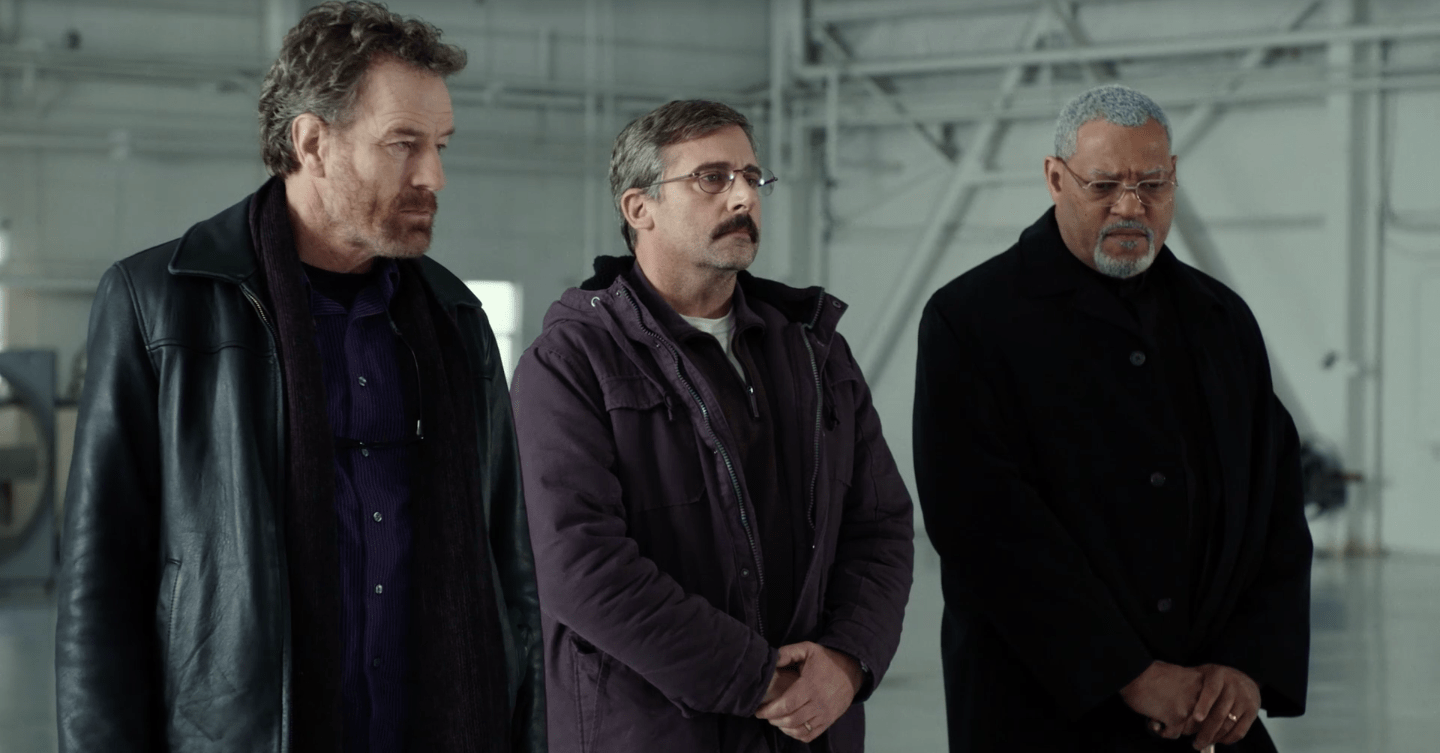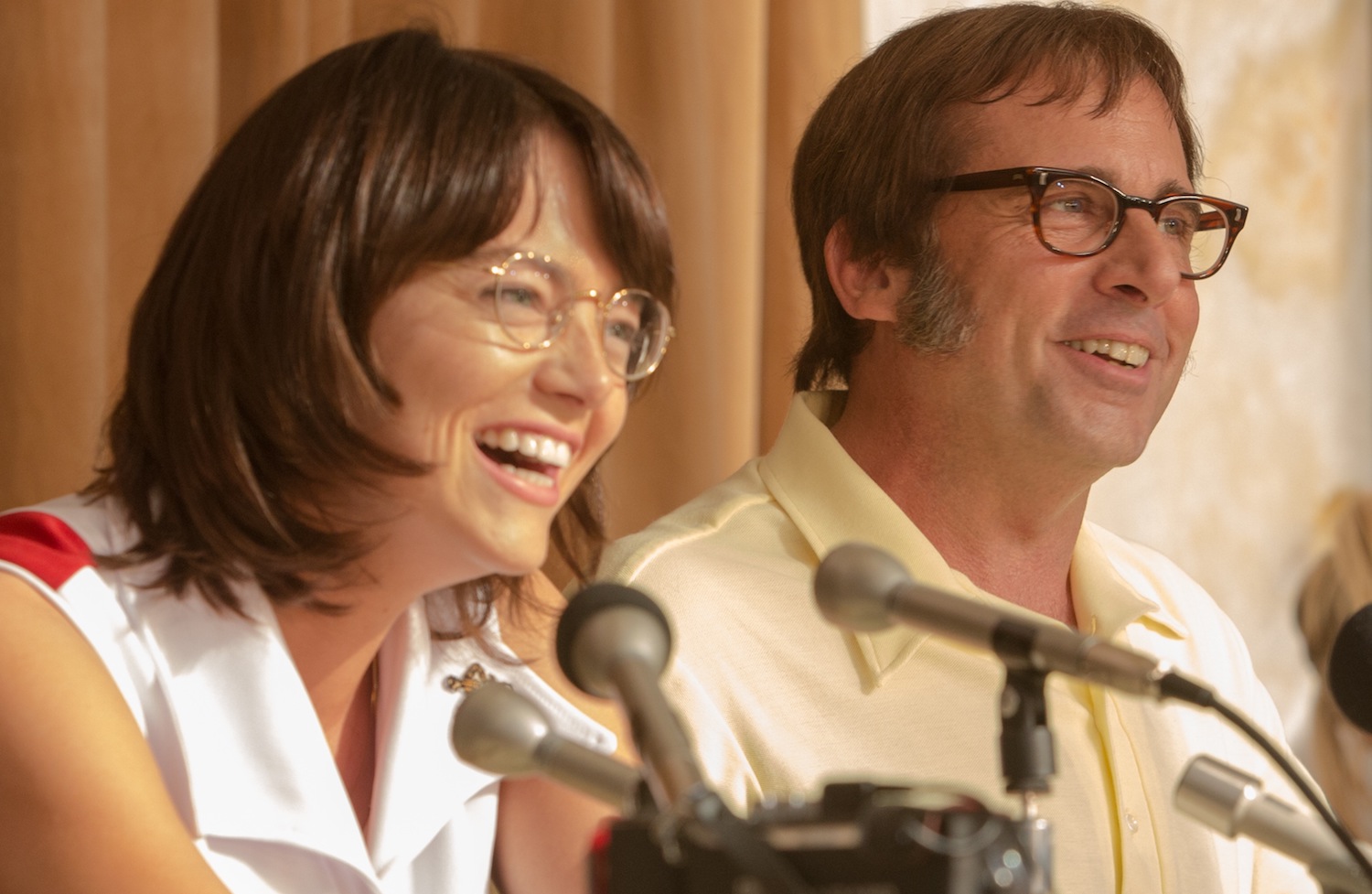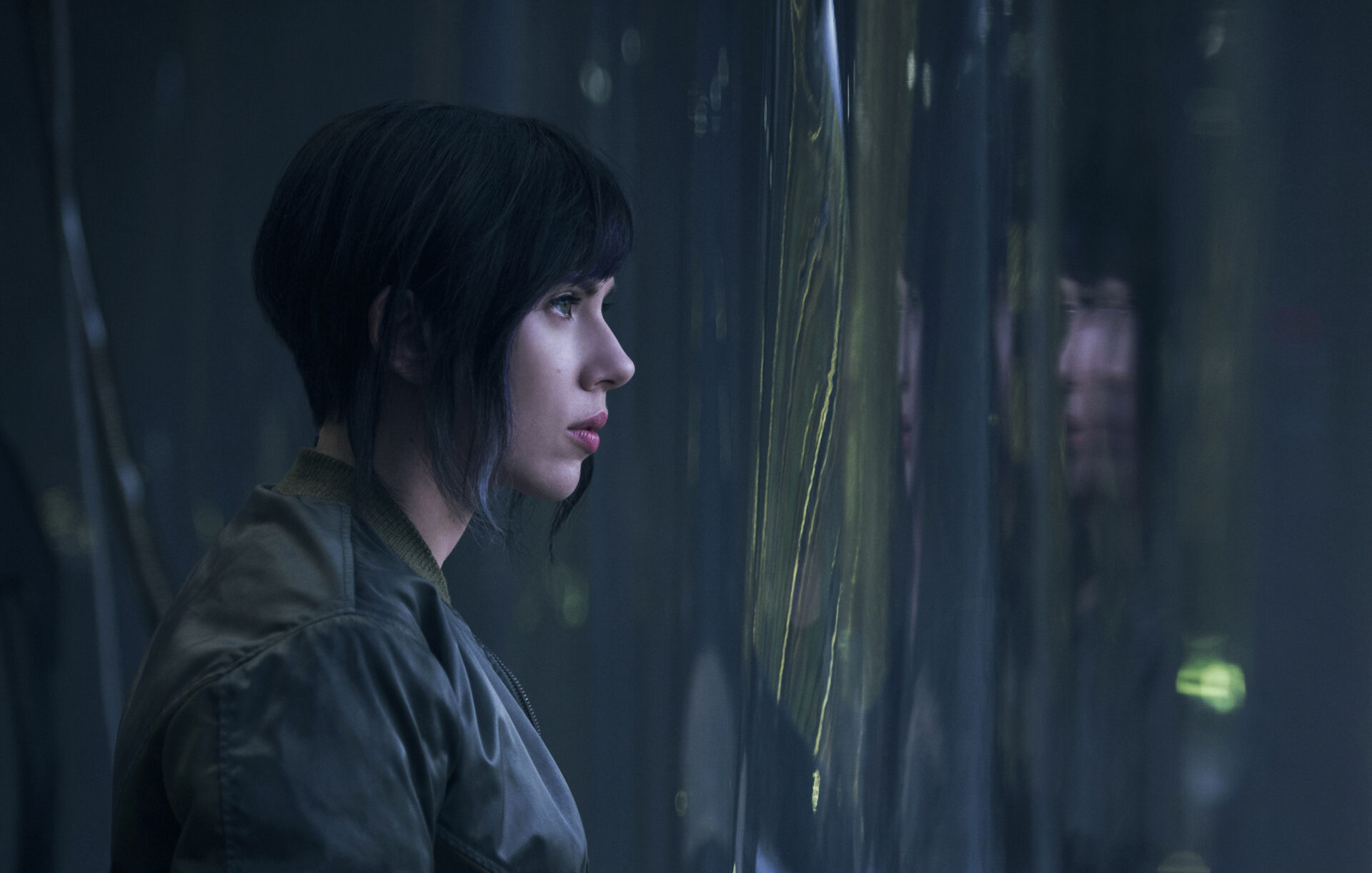Note: There are some light spoilers in this review. It’s nothing major, but if you want to go into ‘US’ completely fresh, bookmark this page and head to a theater.
2017’s Oscar awarding winning movie Get Out was a confident beginning mission statement by then first-time director Jordan Peele. In a time where the overall country seemed to be coming apart at the seams with racial tension, it served as intelligent and satirical commentary on racial outlook and interracial dating. As ambitious as this was for a directorial debut, Peele strives to break any semblance of a “sophomore slump” with an even more ambitious follow up, US.
US brings us to the Wilson family, who are on a current beach trip. This consists of Adelaide Wilson (Lupita Nyong’o), Gabriel “Gabe” Wilson (Winston Duke), and their two children, Zora and Jason (Shahadi Wright Joseph and Evan Alex). What starts as just a small family vacation takes a turn for the sinister – as Adelaide’s childhood fears are realized when her family comes face to face with red jumpsuit clad doppelgangers or “the tethered.”
While this family is our main focus for the crux of this movie, the focus on Adelaide’s incident when she was a child are of importance. These flashbacks slowly unveil themselves throughout the movie and gives little clues as to why things aren’t what they seem. Peele is deliberate with the imagery that he provides. It’s even so in-your-face, that they hit you all at once at the end. It’s like a magic show. You are so enthralled with the payoff of the trick that you might look over any steps that may give it a way. That is the brilliance of a magician – or in this case, Jordan Peele and his story.
The cinematography of Mike Gioulakis is beautiful homage to duality and previous horror movies like The Shining or The Strangers. From the clever use of mirrors in dialogue or using focus during conversations of the tethered and regular people, it gives you a feel of two different worlds within one. Many horror fans might be familiar with the suspenseful shots that are used, especially during the concluding third act. This put together with the magnificent score from Michael Abels gives you an overall sense of dread.
So what does US ultimately unveil itself it be? Well, for one, it’s a straight up horror movie that teeters into thriller category. The increased use of gore by Peele is used as a device to show how brutal the almost vitriolic nature that these characters can go. Each of these incarnations are being threatened and trying to take one’s place.
This is a story of vengeance. The movie makes a continual turn into the macabre and overt anxiousness the deeper you go into it. Nyong’o’s performance both as Adelaide and her doppelganger, Red, will go down as one of the best horror performances in quite some time. She is able to portray both a mother that turns into a primal version of herself to protect her family and some dark entity that is seeking revenge on what the other version of herself “stole.” This also is prevalent with our supporting characters, Josh and Kitty Tyler (Tim Heidecker and Elisabeth Moss).
Kitty’s character is the quintessential rich wife that is concerned about her appearance. Moss is able to show the complete opposite in a brilliant way during her short screen time as her doppelganger. The tethered are connected to their original copies in some way, but completely discard some of their attributes – almost mocking them.
As for the message, it really depends what you’re looking for. While there’s not an overt political statement as with Peele’s first movie, there’s still something to be said on two levels. The movie speaks to the battle against our darkest selves in a main context. Those parts of us that we shield that are ultimately physically manifested in the form of the “tethered” of our main and supporting characters. If we don’t take care of these parts of our personality that lurk in the dark, they will ultimately come for us in the end.
On a more macro level, there’s a smaller racial element and classicism that can be seen as well. Within the horror genre, very rarely do you see a black family at the center. Peele turns this on its ear. With the Hands Across America motif that was during the Reagan era 80s’, you can also see that the regular humans and tethered have a different sense of what two “Americas” between rich and poor are. Peele also plays with this idea of the soul and who gets to experience it fully. You can make a copy of a person, but you can’t do the same for emotions. How does soul and purpose meet and what happens when it does?
Not to say that US is extremely gloomy. There are well timed jokes and humor as well. Especially from the performance of Duke which is a breath of fresh air. Gabriel Wilson is the corny dad that gives jokes at the least opportune times will give you a few laughs. There’s also a generational divide between the parents and their children that lightens up the mood briefly as well.
US doesn’t seek to take the easy way out even up until the final moments. This movie causes you to question everything you’ve seen and even want to go back to pick up on what you missed. Peele’s ambitious story may bombard you with ideas and sensory pallets. Admittedly, it’s a lot to take in for one sitting.
US is a movie that is meant to be viewed more than once. It continually works to challenge you and make you question what you see. There’s a palatable carnality and visceral nature to the movie that a constant, but also, a compassionate human element that is also shown as well. When the best of us is put to the test, Peele turns the mirror back on ourselves to show how far we will go to protect things that are closest to us.

